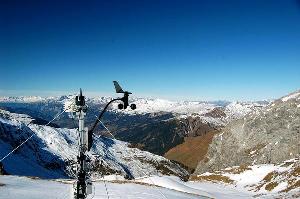Nov 13 2013
Sensorscope: Application-Specific Sensor Network for Environmental Monitoring. Dir: Prof. Marc Parlange

"For fundamental contributions to the development of distributed wireless sensing (Sensorscope) in challenging environments. Sensorscope observations in the African Savanna have allowed for the first time the quantification of the impact of deforestation on the reduction of precipitation."
The natural environment is undergoing dramatic changes, yet all too often we cannot provide satisfactory answers to open questions, such as: "how much change is anticipated?" and "what are the main causes and consequences of such change?" The primary limitation to address these questions has been the essential lack of appropriate spatial and temporal environmental observations across the landscape in which environmental engineers and scientists can test and validate the models that simulate future scenarios and make real time predictions.
We addressed these issues by developing Sensorscope, a low-cost distributed environmental measurement system centered on wireless sensor networks with a built-in capacity to produce high temporal and spatial density measures. The system is based on multiple solar-powered sensing stations that self-organize into a multi-hop wireless network and work as a distributed measurement system.
The Sensorscope system has been used for a wide variety of environmental applications such as urban micro-meteorology, the study and prediction of natural hazards in the Alps, or water management to improve agriculture conditions in semi-arid regions.